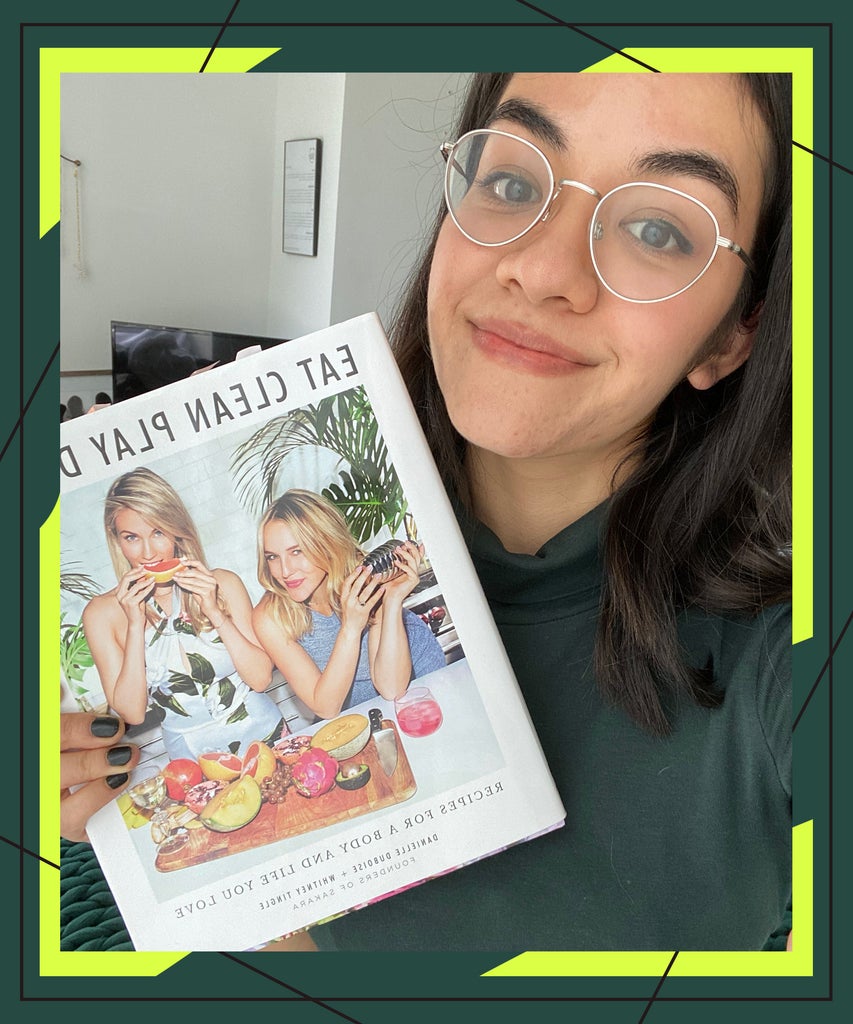
For the uninitiated: NYC-based Sakara is a wellness-focused brand that specializes in the clean-eating lifestyle. It’s best known for its plant-based meal-delivery service that infamously costs a very pretty penny; the three-day plan is $239 total (including breakfasts, lunches, and dinners) and the five-day plan is $349 total. Having tried out Sakara previously, I can confirm that the nourishing meals are hyped up for delicious reasons — the expenses, however, are much tougher to swallow. But, with such an impassioned fanbase (Sakaraheads?), workarounds to living that clean-eating life for less have surfaced: “I cannot afford the meal plan so I bought the cookbook about a year ago. It’s honestly my favorite. It’s a bit pretentious and some of the dishes are a bit complicated but they are all absolutely delicious and have helped me look and feel my best. I didn’t know salads could taste so good. Highly recommend,” one R29 reader commented on our review of Sakara’s meal-delivery service. Intrigued at the prospect of eating like Gwyneth Paltrow for a fraction of the cost, I decided to check out the founders’ bestselling cookbook, Eat Clean, Live Dirty, featuring 240 pages of cult-favorite recipes, healthy lifestyle tips, and more for the comparatively low price of $29. Read on to follow my journey of making Sakara’s breakfasts, lunches, dinners, and desserts from scratch at home — including how much $$$ I actually was able to save and if the effort was worth the reward.
Sakara Ingredients Costs
The first step was choosing my recipes and buying all of the ingredients, which amount to a pretty long, pretty bougie grocery list. Split among trips to Trader Joe’s and a virtual Whole Foods haul (delivered via Amazon Prime), I spent just under $100 in groceries — already a serious steal for the cost of getting Sakara meals delivered to my doorstep.
Breakfast: Superfood Pancakes With Chia-Berry Compote & Lemon-Cashew Crème
Total cost to make: $28.93
Price per serving (2): $14.47
First off, I love cooking and have gotten way more into it in quarantine. I make pancakes relatively often, so I felt pretty confident going into my first Sakara recipe. (Plus, I grew up eating buckwheat pancakes since my dad would make them for me. Japanese people love buckwheat.) The chia-berry compote was really easy to prepare and was ready within minutes. I don’t have a food processor, so I just used my blender and it was totally fine. After simmering the berry-chia mixture in a small saucepan, I stuck it in the fridge to cool and moved onto the rest of the recipe.
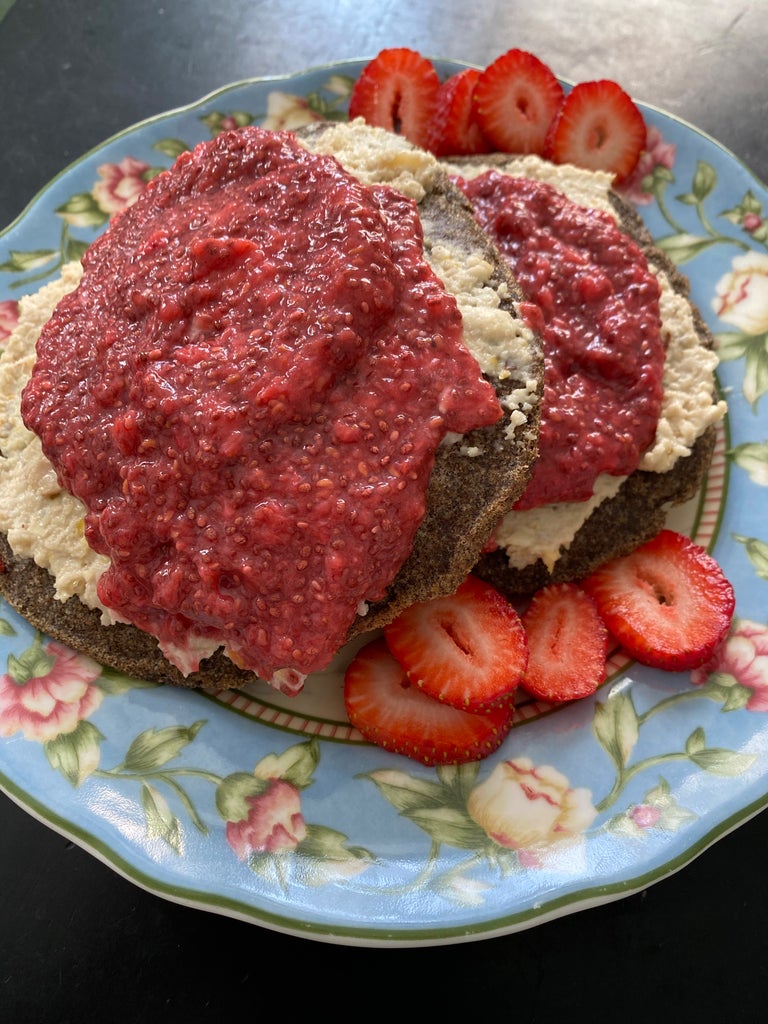
Next, there was the cashew crème. This took a little bit of prep work since you actually had to soak the cashews overnight to soften them up. When I tossed the cashew-lemon mixture into my blender, it didn’t quite achieve the liquidy consistency I needed, so I greased the wheels a bit with some organic hemp milk that I had in the fridge. (I figured this was still consistent with the Sakara lifestyle.) Sure enough, I was able to get the buttery texture I wanted and set that aside.
Mixing everything for the buckwheat pancakes was pretty standard, but I actually stole a trick from my dad when it came down to cooking them: After flipping them once, covering the pan really helps achieve the rise — not to mention, ensures they are fully cooked through. The recipe says to cook for one minute, flip, then two minutes, but I always do two minutes on each side. The end result was a dense (but not too much so) pancake that was super filling and delicious. This was the ultimate weekday treat, and I was able to give the second portion to my roommate, who loved it.
Lunch: Sexiest Salad In New York City
Total cost to make: $26.41
Price per serving (2): $13.20
This recipe immediately caught my eye when I was perusing the book. I mean how could it not? Anyway, the Sakara ladies got me hook, line, and sinker with it. It’s basically a fruit party on top of a bed of kale with the easiest, most delicious honey mustard dressing I think I’ve ever had. I used a blender bottle to mix up all the ingredients, serve, and store any leftovers.
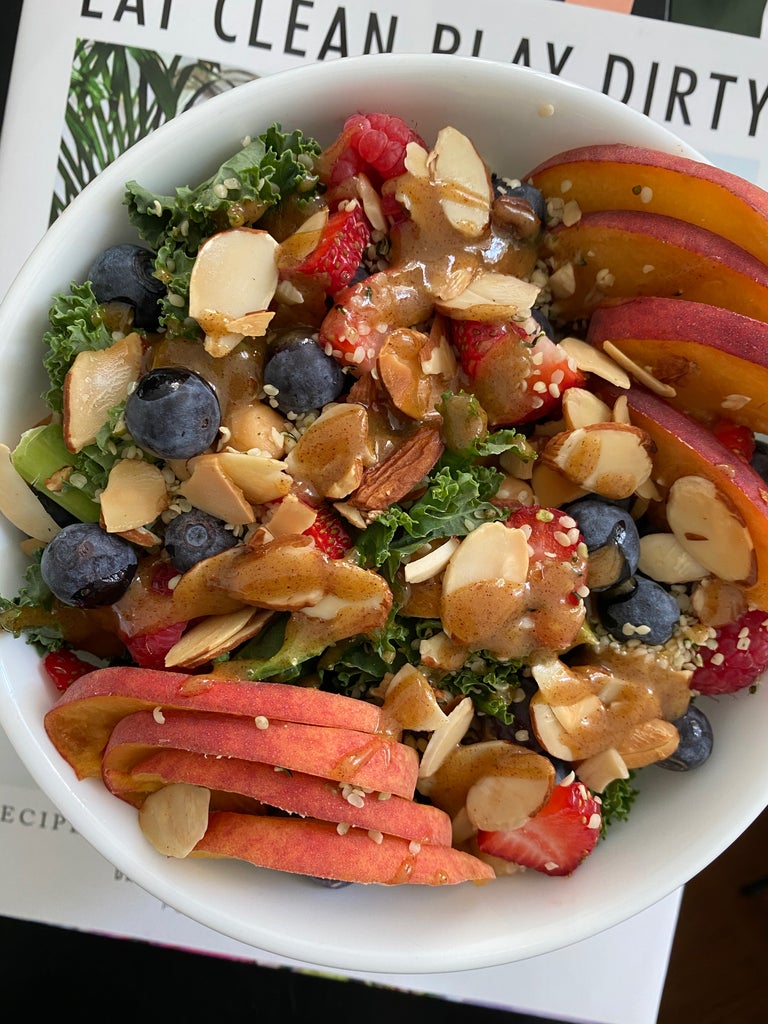
I already love salad, so it didn’t take a lot of convincing for me to adore this one, too. The chickpeas add a welcome amount of protein, and all of the berries make me come back for bite after bite of kale. I forgot to pick up chives at the store but it was still a gorgeous symphony of flavors and the colors really brought the plate to life. Best of all, I was able to prepare everything from start to finish in under a half-hour. I already have plans to remake it for future lunches at home.
Dinner: Sakara Pad Thai
Total cost to make: $21.95
Price per serving (4): $5.48
As someone who loves Asian food (and cooks it often at home) I was intrigued by the concept of a Sakara-ified Pad Thai. The recipe looked amazing, and luckily I had most of the condiments (like tamari and sesame oil) already on hand. I will say, this took way longer than I expected to make from start to finish — so don’t begin this journey on an empty stomach.
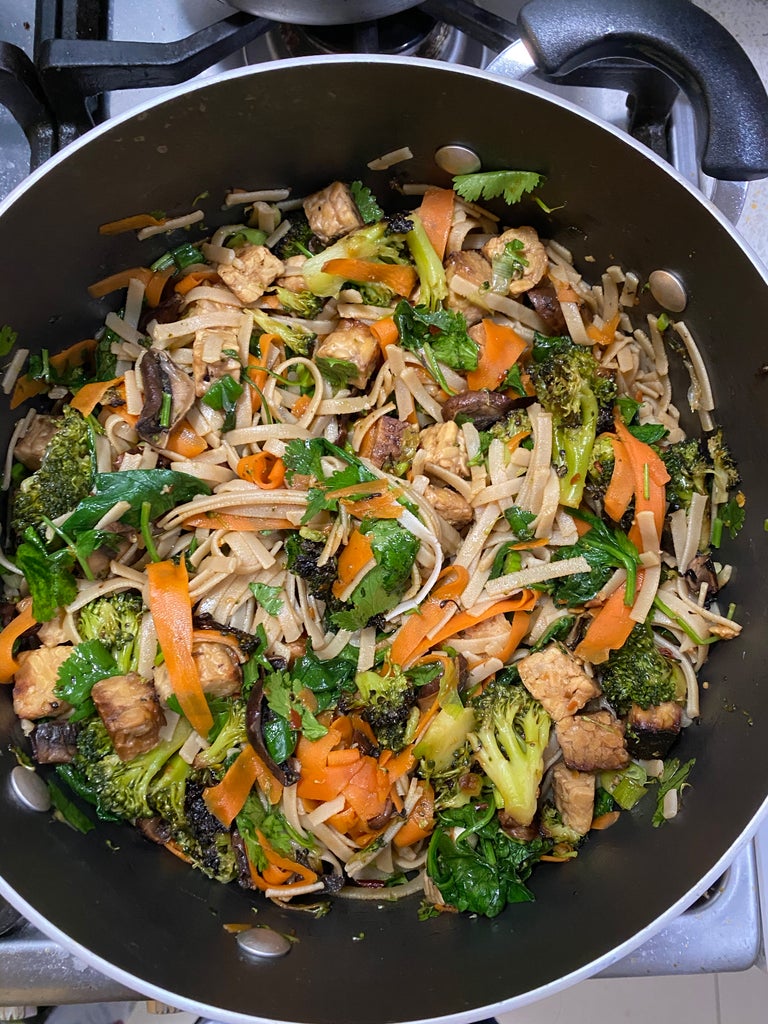
After peeling and cutting lots of veggies, it was pretty straightforward to cook everything up and serve. I actually ended up combining the noodles and the veggies in one pot (I love a one-pot wonder) even though the recipe doesn’t technically call for that. It admittedly doesn’t look as pretty on the plate, but I can live with that. The flavor was on point for a relatively simple sauce (sesame oil, sunflower oil, soy sauce, lime, and honey), and I ended up actually turning up the heat with some gochujang sauce from Whole Foods that I’ve been obsessed with lately.
The recipe yielded enough servings for me to meal prep them for the rest of the week, and the dish itself was filling and indulgent without feeling too heavy. I might not make this again as a weekday dinner for time reasons — but if I were hosting friends at my apartment or cooking for my sister, then I’d definitely make it again (maybe with the help of a Sakara-sous chef).
Dessert: Cacao Power Brownies
Total cost to make: $33.14
Price per serving (12): $2.76
As a self-proclaimed dessert connoisseur and Great British Baking Show superfan, I had my doubts about a “healthy” take on brownies — but if anyone could change my mind, it was the Sakara masterminds. Luckily, I also had a lot of the required ingredients already on hand (maple syrup, raw cocoa powder, almond milk), so that helped lessen any additional costs. (This recipe also ended up being the most expensive to prepare, due to bougie ingredients like maca powder and almond flour.) The recipe itself was super easy to follow and I was able to use my blender to make the almond-oat flour meal and the chocolate ganache topping. (I omitted the coconut flakes since I actually dislike coconut — don’t @ me!)
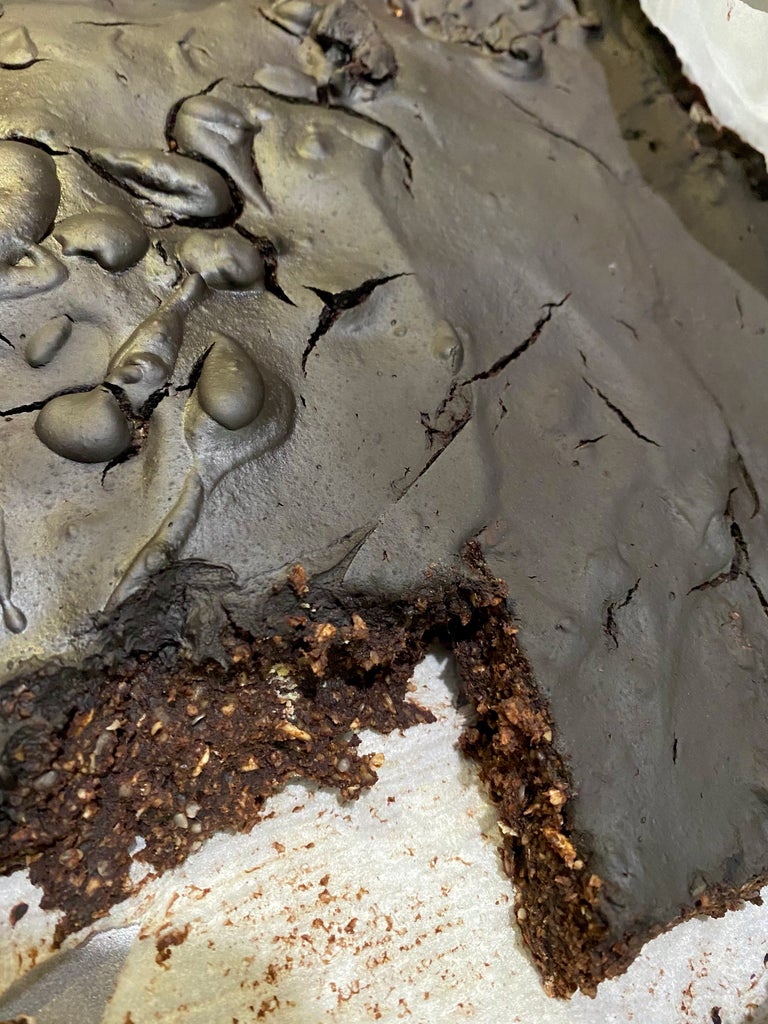
The recipe instructs for leaving it overnight to set — and, as a baking purist on her first-ever no-bake endeavor, I wasn’t sure how the taste and texture would be. (Somewhere in the English countryside, Mary Berry is shaking!) When I say I was completely blown away, I mean it: the dates created a fudgy moist texture and the flavor itself was rich but not overly sweet since there was no added sugar (aside from the maple syrup).
One 13 x 9 pan yielded a dozen brownies, and they kept great in the fridge. I even shared some with my chocoholic twin sister, who gave it her discerning stamp of approval. As a dessert lover, this was probably my favorite recipe that I tried; It was quick and easy to make, and the end result was absolutely delicious.
Was It Worth It?
All in all, I was insanely impressed with my week of Sakara at home. Having tried the meal delivery service myself, I was pleasantly surprised at how easy it was to readily find the ingredients — but, then again, I live in a city with close proximity to specialty food stores and grocery shops. What’s more, I didn’t expect the costs per servings to be as affordable as they were. Living a healthy, mostly plant-based lifestyle is important to me and this cookbook left me feeling inspired by what I was able to whip up in my kitchen.
Not everyone has access to a nearby Whole Foods, nor $100 to spend on groceries (seriously, when did raw cashews get so expensive?) — but for those who are curious about trying Sakara, I honestly recommend giving the cookbook a go. In total, three days of eating straight out of the cookbook (which again, cost me about $100 in groceries) ended up being $140 cheaper than the three-day meal plan. More importantly, it was an actual fun activity that broke up my day-to-day monotony — when’s the last time you made something from a cookbook? 10/10 recommend.
At Refinery29, we’re here to help you navigate this overwhelming world of stuff. All of our market picks are independently selected and curated by the editorial team. If you buy something we link to on our site, Refinery29 may earn commission.
Like what you see? How about some more R29 goodness, right here?
from Refinery29 https://ift.tt/31gf96A
via IFTTT
